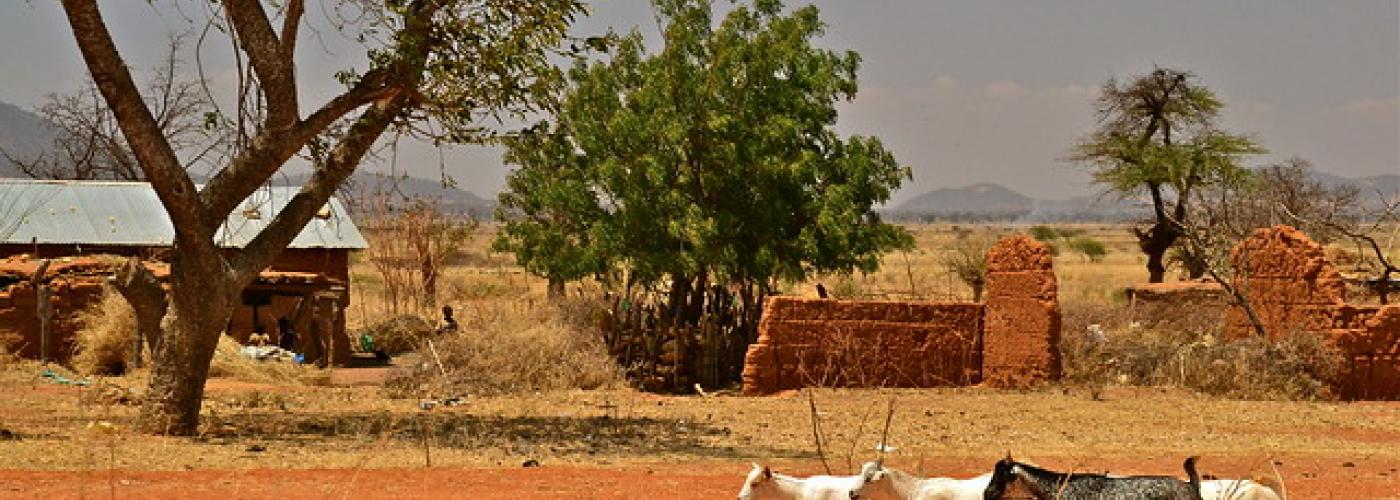A New Way to Boost Smallholder Dairy Productivity in Tanzania
Image

In August, Marketlinks is focusing on the Pay-for-Results model in global development. This post from the World Bank blog highlights an upcoming project to incentivize dairy suppliers in Tanzania to deliver input bundles for smallholder dairy farmers.
This post was originally published on The World Bank Blog and was authored by Christopher Ian Brett, who is the Lead Agribusiness Specialist in the Global Agricultural Practice of the World Bank and a representative on the AgResults Steering Committee.
Although demand for fresh milk in Tanzania is growing, the local dairy value chain isn’t keeping up. With an expected 4% annual GDP growth and 5% annual urbanization rate, the International Livestock Research Institute (ILRI) projects a 600 million-liter milk shortage by 2020, creating a clear sector development challenge.
The Tanzanian dairy sector, which is dominated by smallholder farmers, struggles for a variety of reasons: approximately 97% of Tanzania’s dairy cattle are low-yield breeds, poor management practices are prevalent, and there are seasonal fluctuations in the availability of forage and feed. This precludes many smallholder farmers from accessing affordable extension or veterinary services.
However, Tanzania’s coastal region, which includes Tanga, Pwani, and Dar es Salaam, represents a unique market opportunity to increase dairy productivity. Farmers need access to nutritious feed, vaccines, and artificial insemination (AI). Lack of such high-quality inputs is at the heart of the problem.
The upcoming AgResults Tanzania Dairy Productivity Challenge Project could be the key to solving this problem. In 2013, a group of countries including Australia, Canada, the United Kingdom, and the United States, in partnership with the Bill and Melinda Gates Foundation, created AgResults, a multilateral initiative incentivizing and rewarding high-impact agricultural innovations. The objective of AgResults is to overcome agricultural market failures by offering results-based monetary prizes to competing private actors as they scale-up new agricultural technologies for smallholder farmers. The World Bank operates AgResults’ Financial Intermediary Fund, which as of July 2019 has reached $145 million.
AgResults’ project will use a Pay-for-Results (PfR) prize competition to incentivize dairy suppliers in Tanzania to deliver input bundles for smallholder dairy farmers.
The key word here is ‘bundle.’ Rather than offer fixed sets of goods, AgResults’ prize competition will encourage suppliers to cater to specific farmer needs by assembling bundles, which are customized collections of:
- parasite controls;
- high-quality feed or fodder;
- vaccines; and/or
- artificial insemination (AI) inputs.
To become eligible for a monetary prize, suppliers must first register their proposed bundles comprising one, two, three, or four inputs. Participating suppliers must also provide farmers with extension services. This combined approach will allow dairy farmers to choose from a menu of options when engaging with a supplier.
Focusing on bundling is a revolutionary approach that hinges on leveraging the private sector to spur sustainable change. Below are three reasons why a Pay-for-Results prize could transform Tanzania’s dairy sector.
1. Bundling will expand farmers’ access to services and inputs.
Incentivizing the private sector to actively seek out smallholder farmers and deliver input bundles will cultivate a mutually beneficial relationship. As more farmers adopt quality inputs and realize the benefits of doing so, they will continue to incorporate these behaviors into their production practices. Over time, new commercial relationships between farmers and the private sector will develop.
This happened in Nigeria: AgResults aimed to reduce aflatoxin contamination in maize by catalyzing the private sector to deliver AflasafeTM to smallholder farmers. Over time, maize aggregators learned that if they provided AflasafeTM as one of many inputs and conducted training as part of their extension services, farmers were more likely to adopt AflasafeTM into their agricultural practices — and continue doing so for subsequent seasons.
Right now, Tanzanian input providers neither have adequate distribution networks nor offer consistent training on input use. AgResults hopes to encourage providers to develop sustainable networks and extension services.
2. Bundling will simultaneously target livelihoods and nutritional outcomes.
Because smallholder dairy farmers both sell and consume the milk they produce, incentivizing bundling to boost productivity will amplify economic and health benefits. The combination of inputs will improve the milk quantity and quality, enabling smallholder farmers to create links with commercial milk processors and reach formal markets. When farmers gain a better foothold in formal markets, they will be able to seek out premium prices. At the same time, rural households will regularly access more nutritious milk at home.
3. Bundling will encourage coalitions among businesses … over time.
Rarely can a single business deliver all the input bundles, especially specialized elements such as AI or fodder. Offering a prize for bundling will encourage input providers to develop partnerships that can transform the sector. Since AgResults will provide higher monetary prizes for more complex bundles, it will be in the competitors’ best interest to build partner coalitions to share in these prizes. At the same time, farmers can access higher quality inputs in one place.
Yet this will take time. Partnerships don’t materialize overnight; most farmers will not rush to purchase multiple inputs. Before they commit limited resources and change their approach, they first need to be convinced by seeing the results. The AgResults prize competition acknowledges this range of farmer mindsets by encouraging competitors to provide differently sized bundles. With more than 20,000 dairy farmers expected to benefit from the increased access to inputs, this could be the start of a new era for the country’s milk processing industry, ushering in health and economic benefits.
This could precisely be what Tanzania needs.


